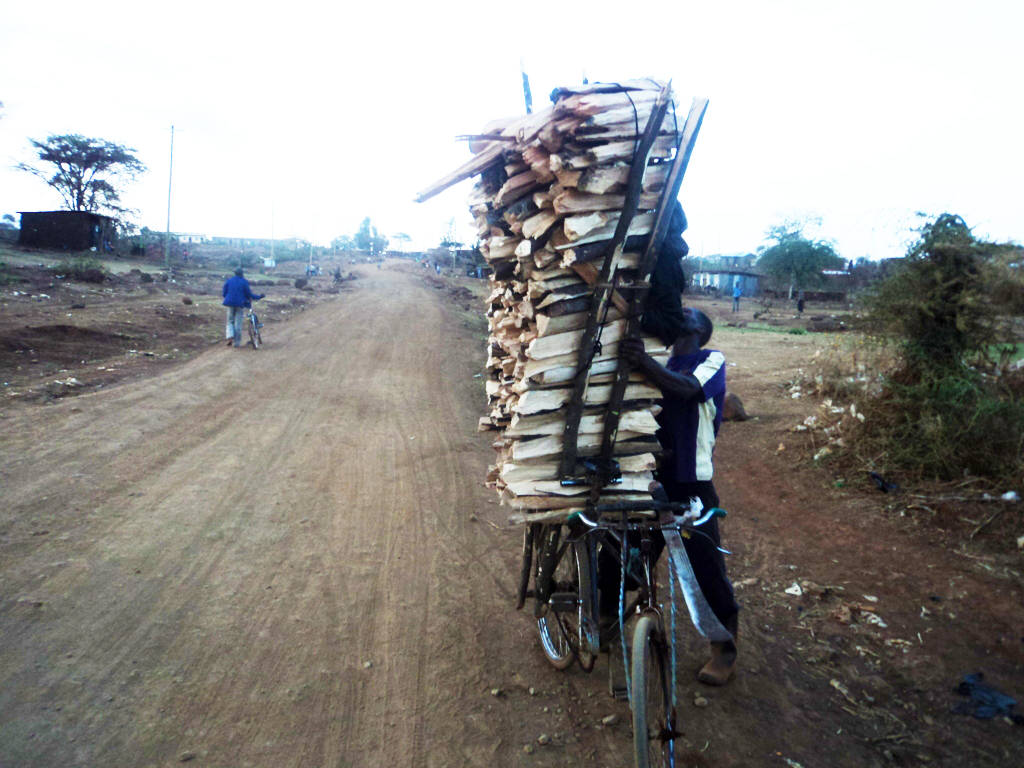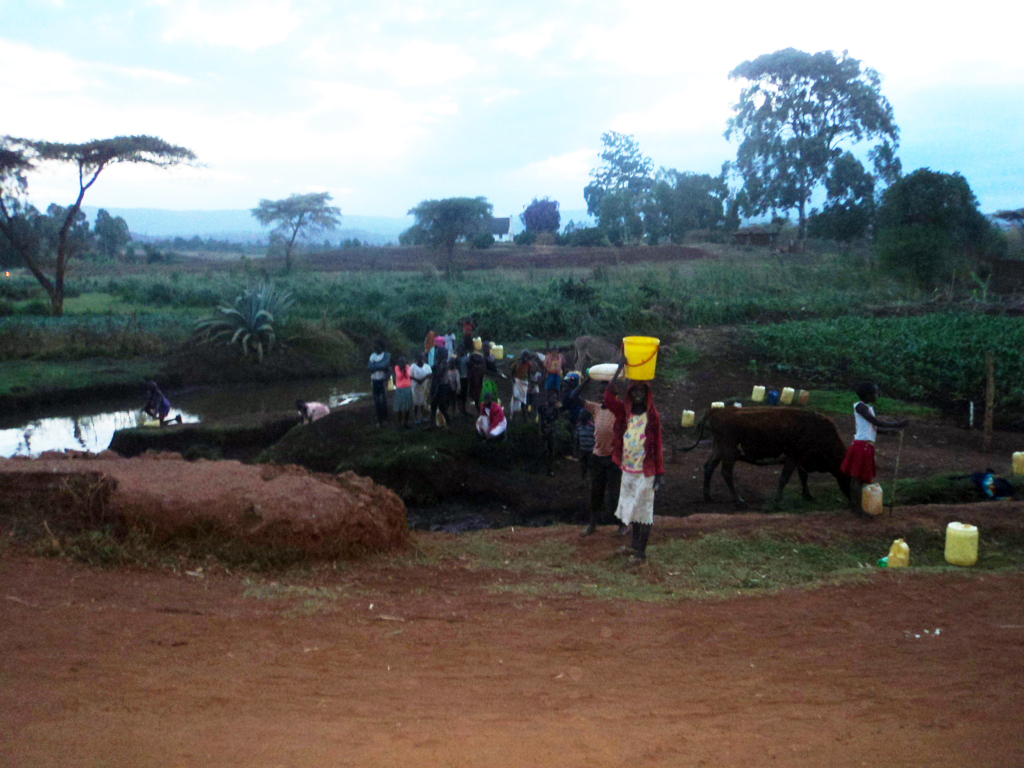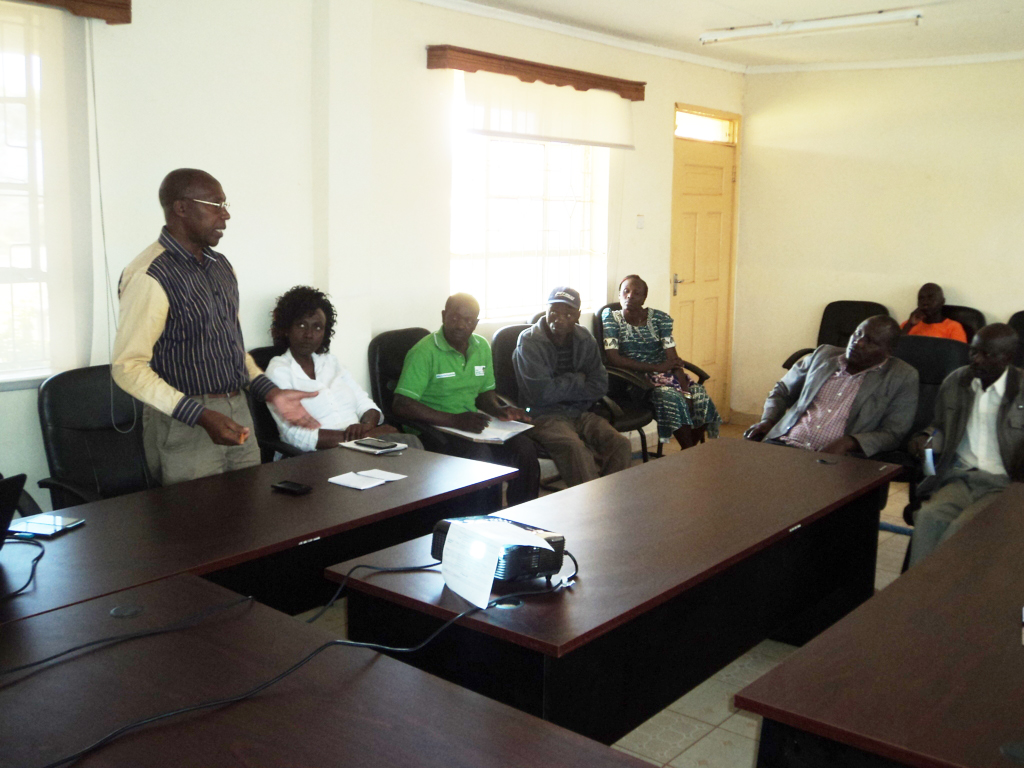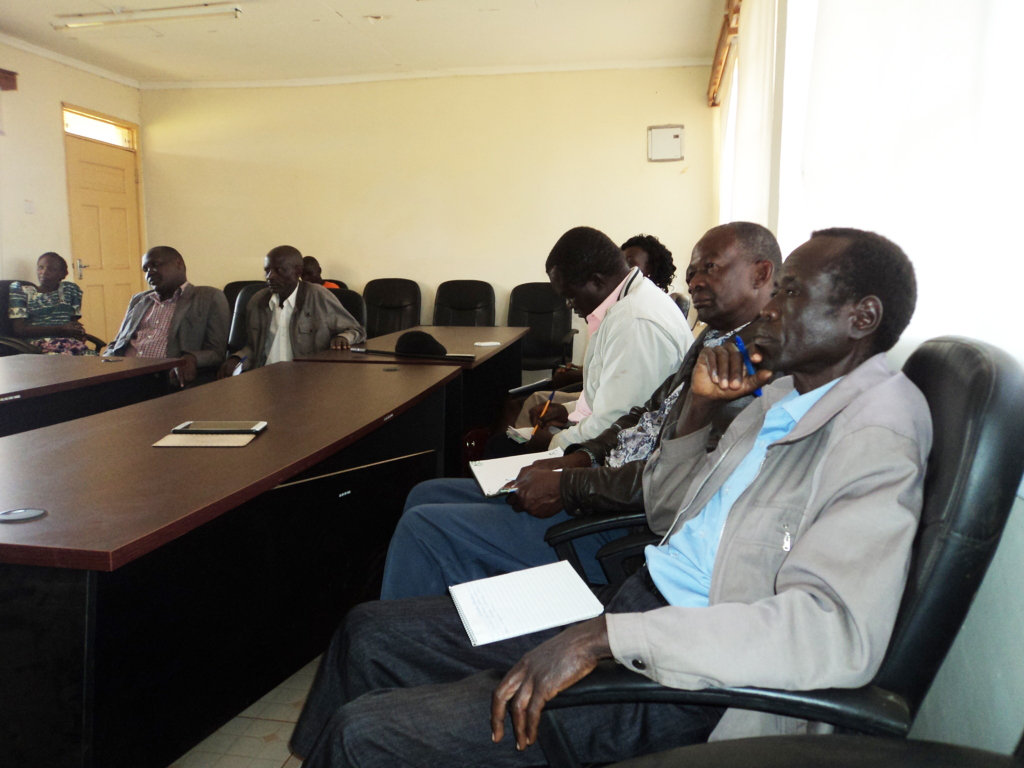GBM Blog
Green Belt Movement intervenes to help communities at the grassroots bear the consequences of unsustainable natural resources utilization
Written by Paul Thiong'o, Project Officer, the Green Belt Movement
The five water towers namely Mau Forest Complex, Mt. Kenya, the Aberdares, Cherangani Hills and Mt. Elgon have been listed as the most crucial water towers in Kenya, providing 75% of the country’s water supply and 50% of its electricity.
Bordering Kenya and Uganda, Mt. Elgon ecosystem occupies an area approximately 4,000 square kilometers within the Lake Victoria Basin in Western Kenya and Eastern Uganda. This ecosystem is an important habitat for wild flora and fauna, a habitat to 37 globally-threatened animal species. Besides this, the ecosystem provides millions of communities with clean water, wood fuel and rainfall, making the region one of Kenya’s major food baskets.
Driving around Mt. Elgon water tower portrays a different picture, one of a region stifled by environmental degradation which is the main challenge facing communities here. Lack of fuel wood and use of poor biomass materials as alternative energy sources has aggravated forest destruction. In Kitale, one of the major towns in the region, women dot the streets, selling maize cobs for use as fuel. The forest adjacent to the town is heavily degraded due to population influx and unsustainable development of the town.

Food insecurity and water scarcity are a headache to the communities especially women in this region many of whom rely of maize growing as the main income generating activity. The emergence of resistant pests and diseases coupled with unpredictable weather patterns has devastated crop yields and left many communities facing imminent drought.
With the current drought situation in most parts of the country, this location has been hard hit by water scarcity despite the region’s location in a water tower. Rivers have shrunk while others have disappeared. This has impacted heavily on the women and children who now have to walk further to fetch water for household consumption from different water points where they scramble for the meager resource with livestock.

The Green Belt Movement in partnership with the Honey Hollow Foundation has intervened to train community leaders at grassroots level on sustainable natural resources management and climate change resilience.
During a recent stakeholder’s inception workshop in Bungoma and Trans Nzoia Counties, stakeholders from different fields among them the local County Government and the Provincial administration were part of the five-day seminar on integrated community-based land use management.
Some of the initiatives that the Green Belt Movement trained the over 200 community leaders on include: rain water harvesting, use of efficient cook stoves, growing of drought resistant crops, tree planting and sustainable agricultural practices. These leaders in turn train communities in their villages to further enhance impact in the community.
The Green Belt Movement has developed a model of establishing village centers of excellence where community members can visit and learn. By so doing, the communities witness first-hand and learn the various livelihood improvement techniques to enable them overcome some of the challenges associated with unsustainable natural resource utilization.
The workshop was a success and the stakeholders pledged their commitment to work with the Green Belt Movement in improving community livelihoods in the region. The respective County governments assured their full support and vowed to spearhead environmental conservation for the good of future generations.


More stakeholders will continuously be involved to ensure smooth implementation of this project.
